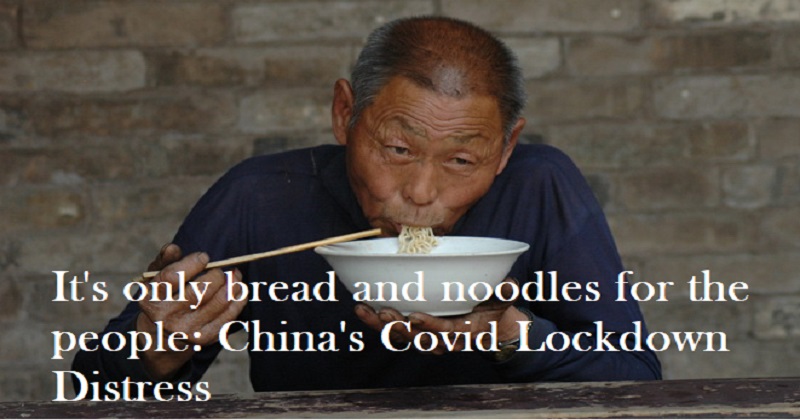
Yining, a city in the Xinjiang region of far-western China, is under its own grueling, weekslong pandemic lockdown. Residents are calling for help over limited food, difficulty getting medicines and drastic shortages of sanitary pads for women. One resident contacted by telephone said that he received food every five days but that there was little nutritional value.
Yining is in an ethnically divided region that has been under an intense crackdown aimed at Uyghurs, Kazakhs and other largely Muslim minorities. Some Shanghai residents complained loudly about food and medicine shortages earlier this year after a citywide shutdown. Yining received little national attention until lately. The United Nations’ human rights office said Xinjiang detentions ‘may constitute international crimes’.
Complaints from Yining have generated a surge of online comments in China. Uyghurs abroad have also shared messages describing poor conditions in quarantine facilities. Many don’t have the tools or the audacity to share what’s happening to them individually. Rights lawyer: ‘Things have gone so extreme and compelled people to call for attention’.
A burst of infections has brought increased restrictions on Guiyang, a city of 4.5 million in Guizhou Province in southwest China. Other parts of Xinjiang, including the regional capital, Urumqi, have also come under tightening Covid restrictions. The Communist Party will hold a major congress in mid-October, and local authorities are under intense pressure to stanch outbreaks of Covid.
Even scattered cases are a worry for officials preparing to host the party congress in Beijing. Vice premier Sun Chunlan told officials to be especially vigilant on Covid to ensure a successful congress. Sun admonished officials to ‘reduce the impact of the pandemic on the public to a minimum’.
Xinjiang government issued rules that it said would prevent Covid’s spread while sparing visitors serious disruptions. In late July, Ili — the broader area including Yining — began announcing scattered Covid cases every day. Within a week, the area had recorded over 140 cases. Officials have said outbreak was from an Omicron variant of the coronavirus that originated abroad.
The Yining authorities have kept news about the lockdown muted, but in interviews with The Times, residents said they had been ordered to stay at home. Some of the residents said that food deliveries had been reduced to a monotonous diet of rice, naan or instant noodles. They spoke on the condition of anonymity because of concerns about a reaction from officials.
One man said he had been eating nothing but instant noodles for two weeks, and it was wreaking havoc with his digestive system. Several women said they had been unable to obtain sanitary pads, making life very difficult. Items like feminine hygiene products are often unavailable at official supply stations and simply sell out too quickly to buy online.
Local officials last week told journalists that there was no truth in rumors that an older resident had hanged himself after suffering severe hunger. Residents have also complained online and in letters to the government about dirty quarantine facilities and chaotic enforcement of isolation orders.

Post Your Comments